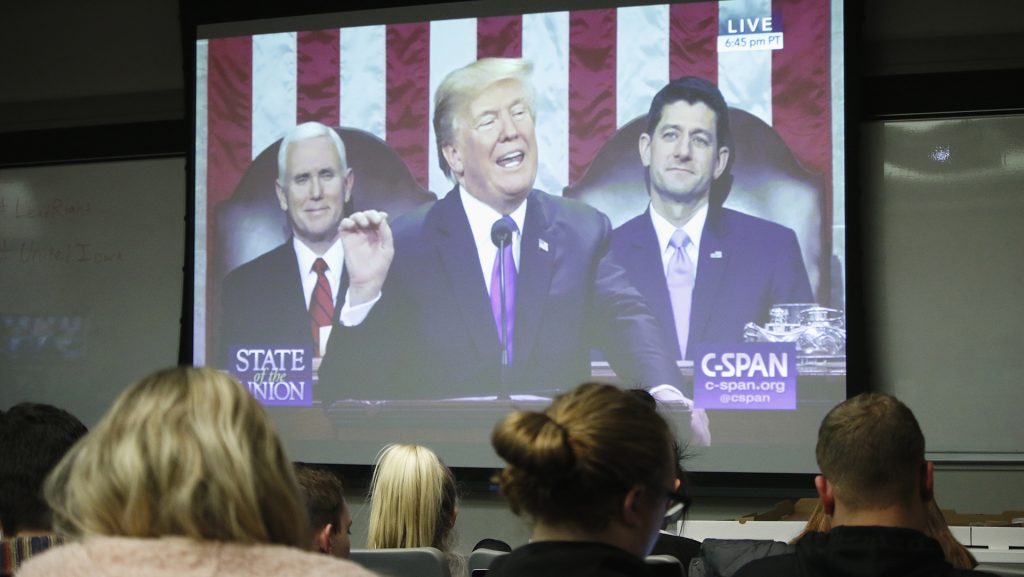President Donald Trump’s first State of the Union Address honed in on an issue he hopes will engender compromise across the aisle: immigration.
In the Tuesday night speech, Trump outlined the four pillars of his immigration policy, the first three being tight border control, including his campaign promise of building a wall on the southern border; ending the lottery system for visas; and moving toward a merit-based immigration system.
RELATED: Rosario: Iowa joins chaotic national debate on immigration
“The third pillar ends the visa lottery — a program that randomly hands out green cards without any regard for skill, merit, or the safety of American people,” Trump said.
The notion that visas are handed out freely, however, is incorrect. Individuals who do come to the U.S. through the lottery program must be vetted and meet certain work and education standards, according to Politifact.
Trump’s fourth pillar is centered on ending what Trump refers to as “chain” migration, in which a single immigrant can only bring in a number of distant relatives — limited to spouses and children.
He also emphasized that, in his view, stricter immigration laws would decrease innocent American deaths.
RELATED: Kumar: Immigration law needs empathy
Trump recognized two families whose daughters — Kayla Cuevas and Nisa Mickens — were brutally murdered by members of the MS-13 gang. Trump claimed that the members took advantage of immigration loopholes.
Trump said his four pillars represent his efforts to compromise on the issue.
Kyle Apple, the vice president of University of Iowa College Republicans, said he thought that although he didn’t agree with everything in the immigration plan, it would be fair to all parties.
“I think it’s a good compromise,” he said. “It checks some boxes on the Republican side, and it checks boxes on Democratic side.”
RELATED: Undocumented UI student talks DACA
Justin Wasson, the Linn County Republican chair, said he didn’t think Trump could have given any speech that could have bridged the gap between the two main political parties. He said he particularly enjoyed the stories of American heroism and the people that Trump recognized throughout his speech including 12-year-old Preston Sharp, who put flags on unmarked veterans’ graves.
“It’s a testament to who lives in this country,” Wasson said.
The beginning of Trump’s speech also outlined the administration’s accomplishments for the year.
Apple said he was glad to hear about the Tax Cuts and Jobs Act, signed into law just before Christmas. Though he did note that the act was mostly a win for Republicans, deviating from Trump’s bipartisan message on topics such as immigration.
Trump touted the tax bill as one of the biggest accomplishments of his presidency. He signed the tax bill into law Dec. 22, which reduced Iowa taxpayers’ income tax by more than $1.538 billion, according to the Iowa Department of Revenue.
UI sophomore Hunter Staszak, a member of the University Democrats, said he was surprised with how long the speech was and how many individuals and families Trump recognized. Staszak said that Trump covered many issues that he’s been talking about but gave little on plans for action.
“I don’t think there was a conscious effort in talking about how he would go about reform,” Staszak said.
It’s very unlikely anything productive will come out of the Trump administration in terms of immigration, Staszak believes, and Trump’s not backing down on his campaign promise to build the wall will damage both parties.



